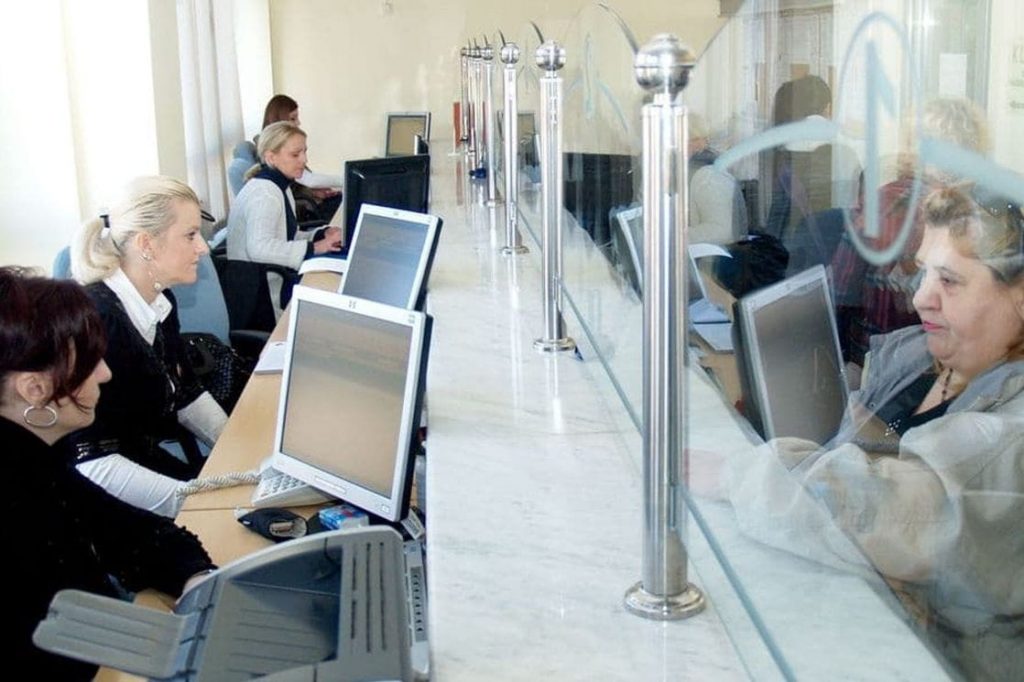
From building to building, from one counter to another. Everyone is familiar with the scenario when we want to submit a request or pick up the necessary documentation. Digitization is for now just a distant dream and a word listed in Strategies which are not implemented, writes N1.
Waiting, going to one and then to another counter. Often from institution to institution. And again without a real result. A common result is what is colloquially called a “paper chase”. It is difficult for citizens, it is difficult for investors, as well as for those who want to open a company.
“You can’t do a hundred papers like this for one subject. Here is an example of a case: you go to the Bureau because you have lost your job, then they make an appointment for you to come to the counter again. If you need to insure the children you need to come again as well”, “We need digitization”, the citizens told us.
Currently, it is unimaginable that we can fill out our tax form, apply for a building permit, for a marriage certificate and numerous other documents for which we have to go to several institutions with one click in our home or office. All this would be made possible by an e-signature.
The Municipality of Centar Sarajevo and the Municipality of Tešanj are moving in this direction in cooperation with USAID. Tešanj will issue the first electronic construction permit next year.
“Those who initiate that process will receive notifications on the contact they leave and will be informed at what stage the case is, whether the document, approval, consent has arrived and they will know who worked on that case and at what stage and in what way. This will mean very important effects for investing in Bosnia and Herzegovina”, said Suad Huskić, head of Tešanj Municipality.
That is what they are hoping for in the Municipality of Centar. They are announcing concrete steps by the end of this year.
“We have started the process of procuring digital electronic signatures for authorized persons from the municipality, for assistants of the Mayor and for Mayor and for those persons who can do a signing under the jurisdiction of the services they manage. We are aware that we will have problems in the beginning, but we are ready for e-administration”, stated Envera Pandžić, PR of the Municipality of Center in Sarajevo.
In practice, lower levels of government are more receptive to the digitization of public administration. Higher levels are holding back the process, according to USAID.
“Unfortunately, we also take steps backwards. What disappointed us a lot is that the Council of Ministers of Bosnia and Herzegovina was not ready to adopt everything necessary for e-signature, so they took a step that does not go in the direction of the interests of all citizens,” said Courtney Chubb, director of the USAID Mission in Bosnia and Herzegovina.
The problem is long-standing. The issue of a single electronic database is a stumbling block, and such a database is a prerequisite for e-signatures.
“One law was passed in 2006, so it is outdated. He envisioned a central certification body at the Bosnia and Herzegovina level. When the implementation started, it got stuck on the question of where the central body would be, and then the Republika Srpska said: it’s a transfer of competence”, explained Dragan Ćuzulan, Coordinator for Public Administration Reform.
Decision makers do not take the interest of citizens and facilitating their everyday life as their responsibility. The reform of public administration has been put before Bosnia and Herzegovina long time ago and is one of the priorities of joining the EU, for which, at least declaratively, all political parties are in favor.
“Our authorities are such that they are committed to the EU, to reforms, but when there are concrete moves that threaten the government’s monopoly, then they look for reasons why they should not go for a certain reform,” Ćuzulan added.
Until such reforms, the citizens have only patience and waiting in endless lines, as well as listening to the well-known sentence: “One paper is missing”.
